Life Is Nothing But A Giant Pay-it-forward Carnival..
Life is nothing but a giant pay-it-forward carnival..
Sheetal Sanghvi is a timeless pilgrim who created the “Urban Ashram”, a space rooted in practices in inner transformation, generosity and service. In the five years since its inception, Urban Ashram has created a thriving community of seekers and change makers.
In this conversation, Sheetal shares the onset of his journey, the simple yet profound truths he has unearthed on the way and stories about fellow travelers who inspire him. Here are some excerpts:
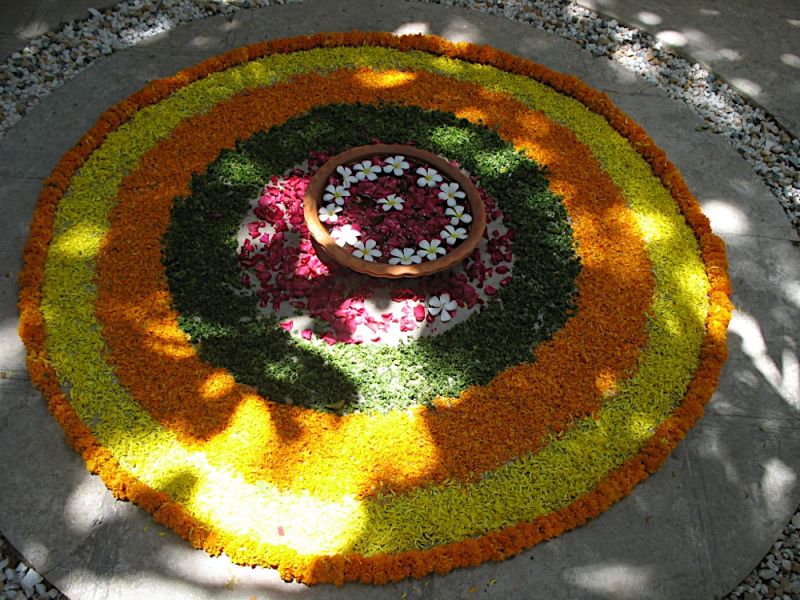
VV: Were there particular moments in your life that started your journey on inner transformation? How did those experiences shape you to what you are today?
SS: When I was nine, my father passed away due to a cardiac arrest. His death created a huge vacuum in my life. I was faced with a void. Questions such as, “What is life all about if it can be snatched away so easily?” started stirring up in my being.
I grew up to be fairly introverted, yet managed to do well socially and academically. After I finished my engineering studies in India, I had the opportunity to go to Chicago to pursue my management studies. When I was in the US far away from home and family, I used to take long walks along the lakeside often. I found myself asking questions again such as “What is the purpose of my life?". After some deep reflection, the answer kept coming that it is time to go back home, your true home, the Source.
VV: We are so grateful that you chose the path of inner transformation. How do you tune yourself to your inner being? What are some of your daily practices?
SS: In my everyday life, my sincere effort is to be present, to give my 100% to be aware and mindful at all times. So more than an external practice, it is like a constant 24 hour space I hold for myself to be a witness, to be aware, to be mindful. That said, something that really grounds and connects me with life all around me is going for long walks. I try and go for a walk every day, from anywhere between half an hour to two hours depending on the space I am in.
I genuinely love journaling. Writing down at least three things I am grateful for everyday is a practice I do every night before I sleep.
I seek out the company of elders, of the wise. In India we call such meetings as Satsangs: keeping the company of the true and the virtuous. It is said that just by being in the presence of someone pure, transformation starts inside you.
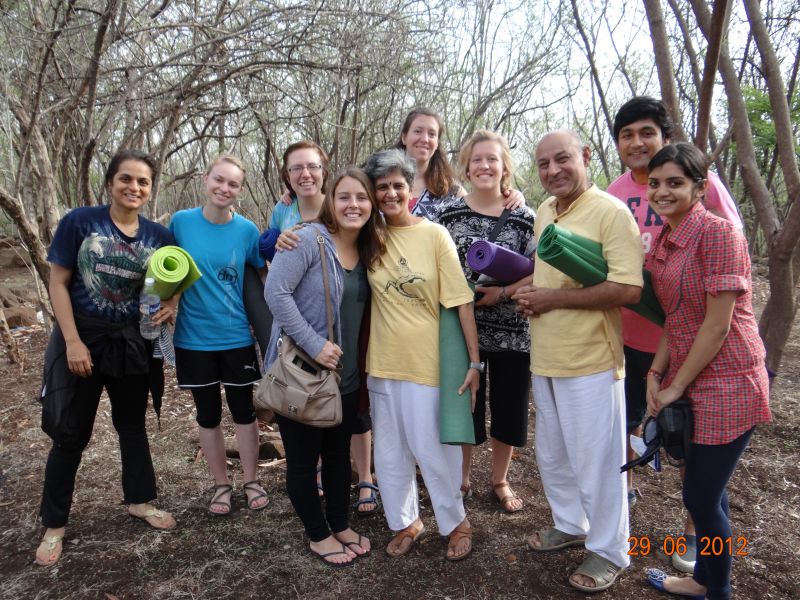
These are some of my practices.
VV: Can you tell us of one such experience of holding space with an elder or someone who inspired you and you learned from?
SS: There are so many in fact. Just two weeks ago, I was in Udaipur visiting a wonderful community called Shikshantar. We got to meet a 92 year old monk by the name of Sant Amitabh. He had spent fourteen years of his life in complete silence. In this period, he spent 3 years at a stretch in a deep forest where he did not meet a single human being. It was a very transformative experience just to be in his presence. He spoke to us about “Vairagya” and “Vivek”.
“Vairagya” means “work to free yourself of cravings and  aversions” and “Vivek” means “develop your intellect your capacity to discriminate between what is appropriate for you, what is healthy for you and what is not.”
aversions” and “Vivek” means “develop your intellect your capacity to discriminate between what is appropriate for you, what is healthy for you and what is not.”
This was just one of the many instances when a wise person would leave a word as a seed inside me and in time with my own mindfulness and awareness this seed would get nourished into a rich, lush, vibrant tree whose fruits are amazing.
VV: In Urban ashram and in so many spaces, you are not just holding space for yourself but also for so many people. How do you hold space for yourself while also being mindful of holding space for others?
SS: I enjoy the practice of Aparigraha, a yogic guideline to live with the least possessions, thereby minimizing your impact on earth. Having a zen like simplicity, allows me more space for myself and others. When we go on a pilgrimage, we do need a certain amount of essentials like clothes, toiletries.However the more we pack in, the larger the weight on our backs and the slower our journeys. I have this kind of rule going on around the Urban Ashram that if we have not used something in our space for the last six months and if we have no use for it over the next six months, we would rather donate it or gift it away so that someone somewhere could make better use of it. This helps me keep the space clutter-free and empty. I have noticed that in clutter-free spaces such as monasteries and ashrams, there is a deeper peace and serenity. .jpg)
We have an inner landscape of thoughts, emotions, beliefs, conditionings and habits. This inner landscape somehow finds ways to project itself out on a daily basis.
“If you want orange juice, don’t go around squeezing lemons!”
What is inside you is what is going to come out. So why not just take stock of our life and ask, “What is it that we want in our external landscapes? 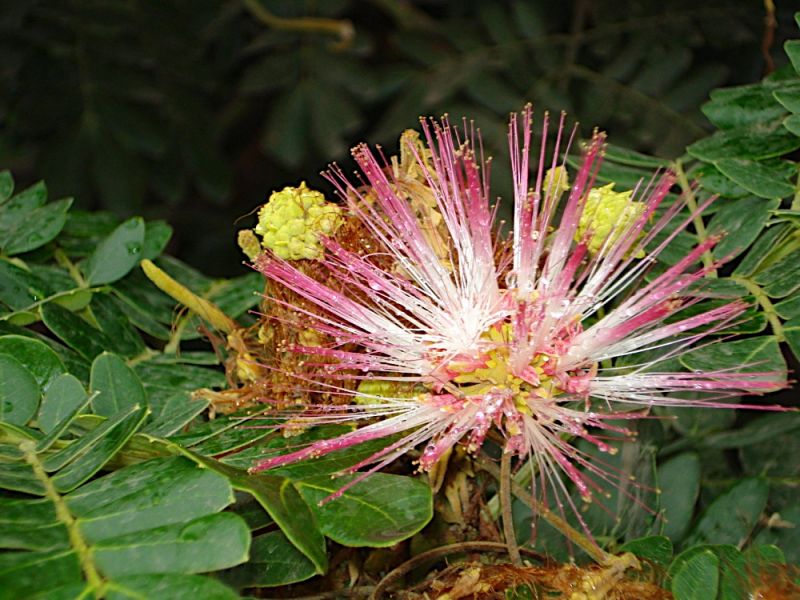
Shouldn’t we be planting the seeds of those plants inside us since the outer landscape is a reflection of what is inside us. We have little control over the outer. We definitely have more say over what we want to plant in our inner landscape.
AD: How have you watered those plants? How have you watered those seeds so that they have sprouted to where you have come today with the Urban Ashram ?
SS: What I like to remind myself of is the importance of weeding and seeding. In our life, we have so many habits and belief systems. So for me it was very important in my introspective times to sit down alone with myself and study my inner landscape. I imagine my mind as a computer and I look at what files are there, what programs are running and what do I wish to keep and what do I need to delete at the earliest. What are the programs I need to do the weeding and what are the processes I need to do the seeding for. It takes a certain amount of inner reflection, inner work because a lot of these answers are not easy. Asking the right questions is very important.
AD: When you are facing adversity what is that you do that keeps moving you forward?
SS: I chant a few mantras (affirmative statements) to myself in time of great adversity. I always remind myself, "This too shall pass.”.
In the journey of life, we are just pilgrims, not residents. Why are we so concerned about these houses we have built on the bridges we are here to cross. I try to humor myself by stepping back and seeing the impermanence of it all, the futility of it, yet at the same time acknowledging human pain and adversity.
VV: How do you and your wife Khushmita support each other in your individual journeys?
SS: I think one of the most important things we do is to create spaces between each other. I quote Gibran here as he said “Be like the pillars of a temple that hold the roof, not too near, yet not too far” and "Be like two trees, growing together yet not eating into each other’s space and nourishment". I think creating space between us mindfully is one of the most important practices we have. Towards that end, we try and sit in silence every day, we go for retreats, she could be gone for a week for a yoga camp, I could be gone for ten days for a silence retreat. Second, we actively engage in dialog about a shared value system and what is our vision and where are we headed. There is a beautiful teaching I received once way before our marriage. "If a man and a woman get attracted to each other and start moving 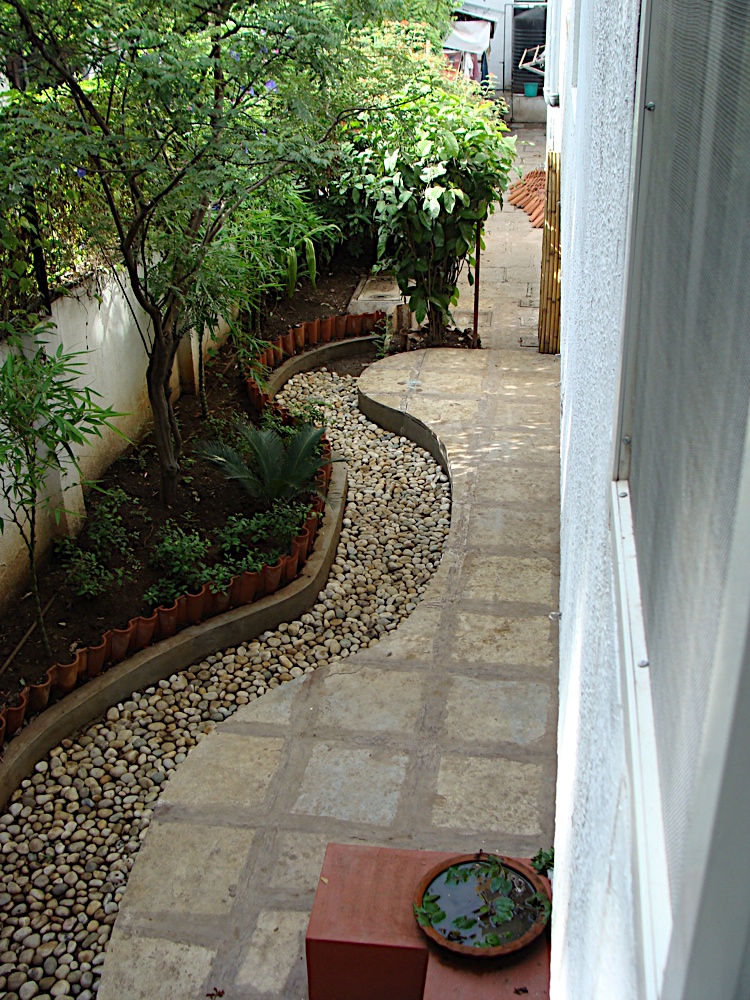 toward each other a point will come when they meet but how long will they be in that static state? The movement towards each other was linear so after they have met, their linear journey will continue and they will move away each other. That is what happens with most relations as they come running towards each other but end up running away from each other over a period of time. What the teacher told me is to find a common destination to walk towards along with your life partner. In that walk, at some point you will merge into each other as well as into that you which you both are seeking.
toward each other a point will come when they meet but how long will they be in that static state? The movement towards each other was linear so after they have met, their linear journey will continue and they will move away each other. That is what happens with most relations as they come running towards each other but end up running away from each other over a period of time. What the teacher told me is to find a common destination to walk towards along with your life partner. In that walk, at some point you will merge into each other as well as into that you which you both are seeking.
VV: Just thinking about the Urban Ashram and the many beautiful things that happen there, can you share some stories?
SS: I am just feeling that the whole of life is nothing but a giant pay it forward carnival. Anything that I am inspired to do or in our community that anyone is inspired to do is usually the result of them having been touched by the same act at some point in their life. The very birthing of the ashram itself is the result of a pay it forward. When I was in Chicago, I was going through a rough emotional patch. I connected with a beautiful Indian couple who used to host spiritual gatherings at their home every Sunday. When they came to know of my difficulty, they ended taking me into their home and into their hearts. They hosted me for almost a year with no strings attached and it was beautiful because until a month ago, we had not even known each other and here I was living with them.
The seeds of such heartfelt generosity went deep into me and I committed that if I ever have a home of my own, I would love to keep it open for traveling pilgrims, for people who need that support. I also remember my first Wednesday at Santa Clara which nourished me so beautifully and deeply that that very day I felt again that if I ever I had a space of my own, I would love to host similar gatherings. I am deeply grateful for the Wednesdays and Service Space community that planted these seeds.
Every Wednesday, a group of volunteers just take the leftover food and go walk the streets. They not only feed the homeless but actually sit down and have small conversations seeking a deep connection asking them their name and connecting with them at a human to human level.
VV: Can you tell us some transformations you have seen in the many volunteers who come to the ashram, someone’s trajectory of where they were and where they are right now?
SS: There is a beautiful story of someone who had been coming for the Awakin circles for the last five years. One day, she just got up and said, "I love Wednesdays. It would be so wonderful if every day I woke up and it would be a Wednesday." She shared that she loved the fact that random people come together, sit together in silence and create space to share stories. This  lady has gone on to create two more Awakin circles in Pune itself. It is very interesting because she anchors them in very diverse settings, one is at a senior citizens space where the participants are between the ages sixty to ninety. The second one is at a nunnery which houses 12 nuns who have been in service for 50 years.
lady has gone on to create two more Awakin circles in Pune itself. It is very interesting because she anchors them in very diverse settings, one is at a senior citizens space where the participants are between the ages sixty to ninety. The second one is at a nunnery which houses 12 nuns who have been in service for 50 years.
Another friend, who was working in a bank for seven years, after a few months of yoga practice with us felt a calling from within to quit her job and study yoga. She intends to come back into the community after her studies and serve. And as we speak right now, she is in Kerala for a one month intensive yoga course.
Another story is a ripple from the Wednesday gatherings at Santa Clara. There was this beautiful library of books which was open for all to borrow from and then pay forward the books wherever we may be. We genuinely wanted to create the same in Pune, so we invited our community to pool in their books and every week people are invited to take books from there and then share them with their friends. Inspired by this experiment, one of our friends Harsh, who had received a gift of Rs. 6000 to do an act of kindness, bought many inspirational books for his own little experiment. He packed ten boxes of diverse books and sent them to different Awakin gatherings across India with a note that “ I was inspired to start a little experiment, a pay it forward library, can you do the same in your community?”.
AD: How have you and your wife grown together as I am sure each person faces their own individual challenges and maybe even the end goal may look a little bit different. So how have you supported one another and again coming back to the larger space you guys are supporting.
SS: Active dialog is one of the most important things in any relation. We keep sharing authentically and honestly. We give space to each other, as well as space to hold each other. Love is not a constant flow for us right now but micro moments. We seek to create those micro moments in our daily life and hold each other in a sense of wonder and mystery, allowing each other to be.
is not a constant flow for us right now but micro moments. We seek to create those micro moments in our daily life and hold each other in a sense of wonder and mystery, allowing each other to be.
PI: In your journey, there must have been challenges or events that must have pushed you or challenged you got you to the edge of questioning "Is this really what I want to be doing?" Could you share some of those stories and how you overcame them?
SS: While in business school, I reached a point where I just could not continue my studies even though only three months were left to finish my degree. I was unclear and unhappy with my life and I decided to go on an inner journey to figure out what is it that I really wanted in my life. Once someone asked me "What is that you want to do in your life?" and I ended up talking about all the things I did not want to do.
It somehow someday struck me in mid conversation: "What am I doing? Should'nt I be focusing on where I want to head? And figure out what I want in my life and not what I don’t want?"
As a response, every morning, the first thing in the day I would ask myself "What makes me come alive?" and I would take 20 minutes to just list down catch words of whatever came to mind. Words like yoga, meditation, nature, conversation, service etc. At the end of three months I saw my notes, and noticed a few words like meditation and service had been written almost every day. That’s how I got clarity around what made me happy. I felt a calling to build my life around what makes me "come alive".
Regarding dealing with adversities, I have this practice of asking "Am I the sky or 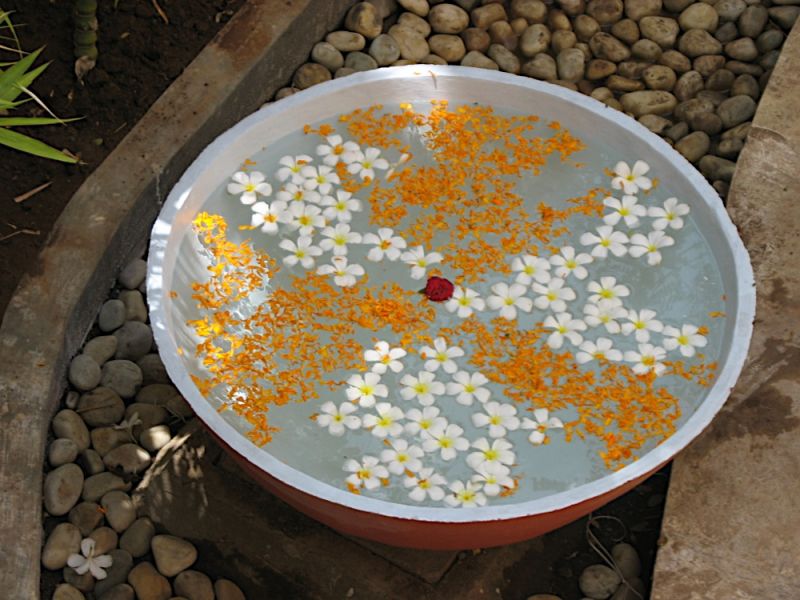 am I the clouds?”.
am I the clouds?”.
“Am I the ocean or am I the waves?” Reflecting on impermanence, the fact that "this too shall pass" has held me in good steed.
MO: The purpose of my life is for weaving the oneness of humanity. How can we bring greater awareness to what that actually means and how it would look. Do you have any .jpg) suggestions for my personal situation of shifting from a physically active doing mode to being less doing oriented but still synced with what I am here for.
suggestions for my personal situation of shifting from a physically active doing mode to being less doing oriented but still synced with what I am here for.
SS: Thank you, Michelle! I loved what you spoke about having a mission of weaving oneness in humanity. It reminded me of a beautiful Sanskrit mantra “Lokah Samastha Sukhino Bhavanthu” which translated says “May all beings everywhere be happy.”
In response to your earlier question, I offer you the wisdom of Jayeshbhai’s father, Ishwardada who was a very important mentor in my earlier life. He used to say, “Bloom where you are planted.” You can serve where you are. You don’t need to go somewhere else. You can be of service in so many ways."
Another beautiful story from Mother Teresa’s time is when she said “You can do no great things, only small things with great love.“
Life has a way of showing us a path to our highest selves if we plant the seeds of our intentions with great love.
MC: How do we know that what we are putting out is really what we are thinking we are putting out because we may not be seeing ourselves truly or honestly. So basically that is my question: if reality correlates with what we think of our self.
SS: The number of blind spots I feel in my inner landscape is correlated with how fast I am running or how restless I am. That’s why the slower I become the more still and the more clearly I can see what lies at the bottom of my mind. For me it is about slowing down and really looking deeply both within me and around me.
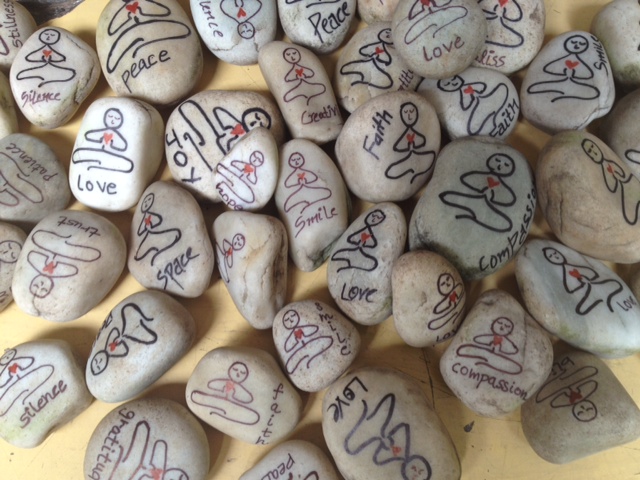
Sheetal lives with his wife Khushmita in the Urban Ashram in Pune. He also spends extensive time in the Gandhi Ashram in Ahmedabad in the company of noble friends continuing his intensive pursuits of service and inner transformation.​
Posted by Vinya Sankaran Vasu on May 26, 2013
SHARE YOUR REFLECTION
3 Past Reflections


On Oct 6, 2016 Al wrote:



On Jun 3, 2013 Pratyush Rajvanshi wrote:
Post Your Reply